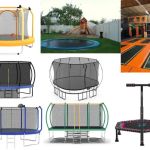- trampoline-competition-overview
- event-preparation-and-warm-up
- competition-rules-and-judging-criteria
- common-challenges-and-how-to-handle-them
- tips-and-resources-from-trampoline-zone
1. Trampoline Competition Overview
Attending your first trampoline competition can be exciting and a bit overwhelming. Understanding what to expect at a trampoline competition is key to feeling prepared and confident. Competitions typically feature athletes performing routines on a trampoline, showcasing skills such as flips, twists, and precise landings. Participants are judged on technique, execution, difficulty, and overall performance.
Competitions vary from local meets to national championships, each with its own set of standards and participant levels. Regardless of the scale, the spirit of competition encourages growth, sportsmanship, and personal bests.
2. Event Preparation and Warm-Up
Before the competition, athletes usually go through a warm-up routine to prepare their bodies and focus their minds. Warm-ups involve stretching, light bouncing, and practicing specific skills. It’s also important to familiarize yourself with the venue, check equipment, and ensure your trampoline setup complies with competition standards.
Many competitors use this time to mentally visualize their routines, helping reduce nerves and improve concentration.
3. Competition Rules and Judging Criteria
Trampoline competitions are governed by strict rules to maintain fairness and safety. Judges score performances based on several factors: execution of moves, difficulty, form, control, and landing quality. Points may be deducted for hesitations, poor technique, or unstable landings.
Familiarizing yourself with the official rules and judging criteria before competing can give you an edge and help set realistic performance expectations.
4. Common Challenges and How to Handle Them
Nerves and pressure are common challenges at any trampoline competition. It's normal to feel anxiety, but experience and preparation can greatly reduce its impact. Techniques such as deep breathing, visualization, and positive self-talk help maintain composure.
Additionally, unexpected situations like equipment issues or schedule delays may arise. Staying adaptable and calm will help you perform at your best despite these obstacles.
5. Tips and Resources from Trampoline Zone
Trampoline Zone offers valuable resources to help you excel at competitions, including training equipment, guides, and expert advice. Whether you are a beginner or seasoned competitor, their products can enhance your practice sessions and competition readiness.
Visit Trampoline Zone for gear recommendations and tips that will support your trampoline journey every step of the way.







 Sky Zone Trampoline Park4.0 (541 reviews)
Sky Zone Trampoline Park4.0 (541 reviews) Launch Family Entertainment Park Norwood4.0 (730 reviews)
Launch Family Entertainment Park Norwood4.0 (730 reviews) Southern Ohio Gymnastics Academy ( SOGA )4.0 (40 reviews)
Southern Ohio Gymnastics Academy ( SOGA )4.0 (40 reviews) Jumpify2.0 (15 reviews)
Jumpify2.0 (15 reviews) Jump! Gymnastics4.0 (102 reviews)
Jump! Gymnastics4.0 (102 reviews) Sky Zone Trampoline Park4.0 (248 reviews)
Sky Zone Trampoline Park4.0 (248 reviews) Are Trampoline Parks Safe for Kids? Essential Guide for U.S. Parents
Are Trampoline Parks Safe for Kids? Essential Guide for U.S. Parents How Often Should You Replace Trampoline Springs? Tips for Proper Maintenance
How Often Should You Replace Trampoline Springs? Tips for Proper Maintenance How Much Is a Trampoline? A Detailed Guide to Trampoline Costs and Buying Tips
How Much Is a Trampoline? A Detailed Guide to Trampoline Costs and Buying Tips Bounce Techniques for Stronger Legs: Effective Exercises and Tips
Bounce Techniques for Stronger Legs: Effective Exercises and Tips Essential Music Gear for Trampoline Dance: Complete Guide
Essential Music Gear for Trampoline Dance: Complete Guide Fun STEM Experiments Using Trampolines to Spark Curiosity and Learning
Fun STEM Experiments Using Trampolines to Spark Curiosity and Learning